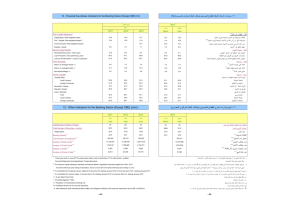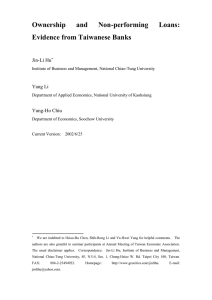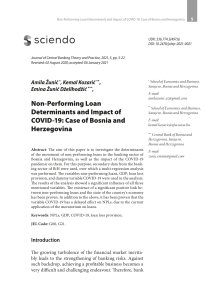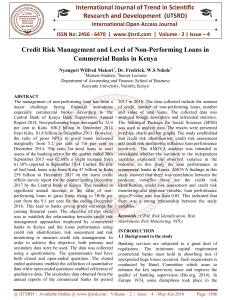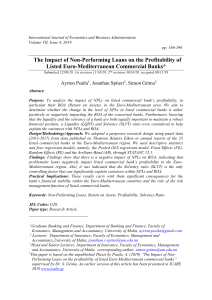Five Principles for Dealing with Non-Performing Loans
advertisement
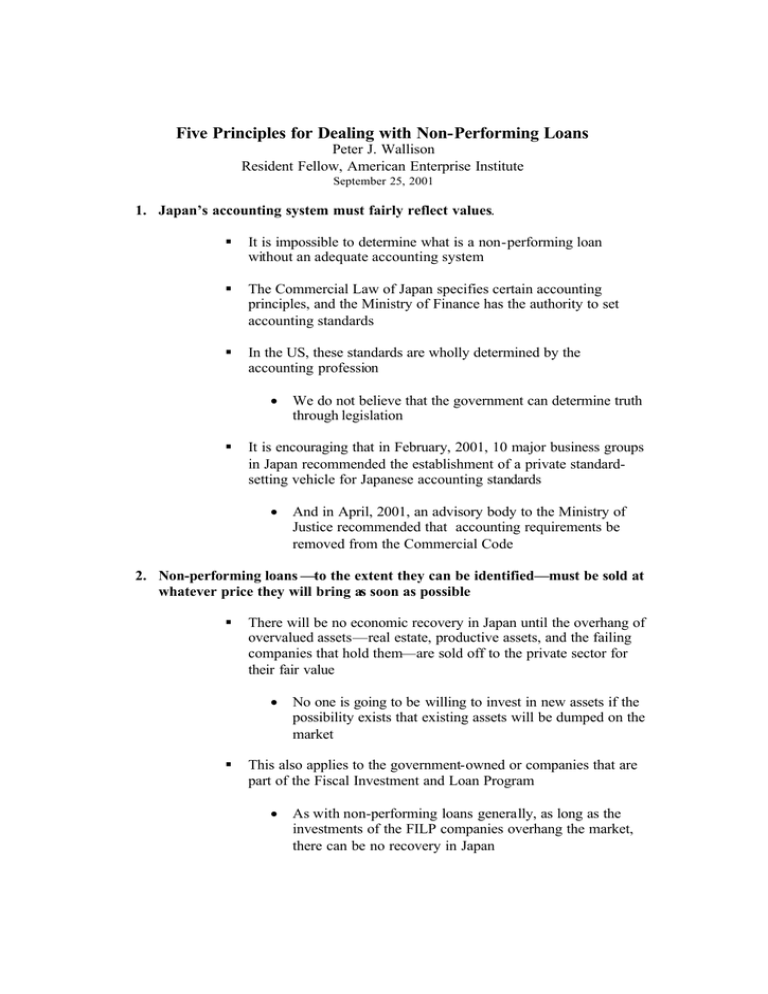
Five Principles for Dealing with Non-Performing Loans Peter J. Wallison Resident Fellow, American Enterprise Institute September 25, 2001 1. Japan’s accounting system must fairly reflect values. § It is impossible to determine what is a non-performing loan without an adequate accounting system § The Commercial Law of Japan specifies certain accounting principles, and the Ministry of Finance has the authority to set accounting standards § In the US, these standards are wholly determined by the accounting profession • § We do not believe that the government can determine truth through legislation It is encouraging that in February, 2001, 10 major business groups in Japan recommended the establishment of a private standardsetting vehicle for Japanese accounting standards • And in April, 2001, an advisory body to the Ministry of Justice recommended that accounting requirements be removed from the Commercial Code 2. Non-performing loans —to the extent they can be identified—must be sold at whatever price they will bring as soon as possible § There will be no economic recovery in Japan until the overhang of overvalued assets—real estate, productive assets, and the failing companies that hold them—are sold off to the private sector for their fair value • § No one is going to be willing to invest in new assets if the possibility exists that existing assets will be dumped on the market This also applies to the government-owned or companies that are part of the Fiscal Investment and Loan Program • As with non-performing loans generally, as long as the investments of the FILP companies overhang the market, there can be no recovery in Japan § The only way to determine the value of these assets is to sell them for whatever they will bring; they have no value other than what people will pay for them 3. When non-performing assets are sold, they must be sold at auction § Since Japan lacks an effective accounting system, it will be difficult to establish values § The only way is to encourage bidding by the largest possible crowd § The first bidders will make windfall profits—and this will cause second thoughts among members of the public —but it is important to keep in mind that these profits will attract more bidders • Eventually, with large numbers of bidders, the assets sold will bring good prices 4. Foreign bidders must be welcomed § In order to produce the best price, foreigners must be allowed to bid, and to acquire large amounts of assets in Japan § Japan cannot compete in a global economy if its companies compete at home § Japanese taxpayers, who must ultimately pay the bill for the cost of this effort, are entitled to receive the greatest return these assets can bring 5. The government must recapitalize the banks § The sale of assets at deep discounts will make the Japanese banks insolvent § The government will have to recapitalize the banks and reimburse its losses through the sale of the banks’ loan assets • § This means the banks’ shareholders will be wiped out, and their management changed When the banks have returned to profitability, the government must sell off the shares 2
